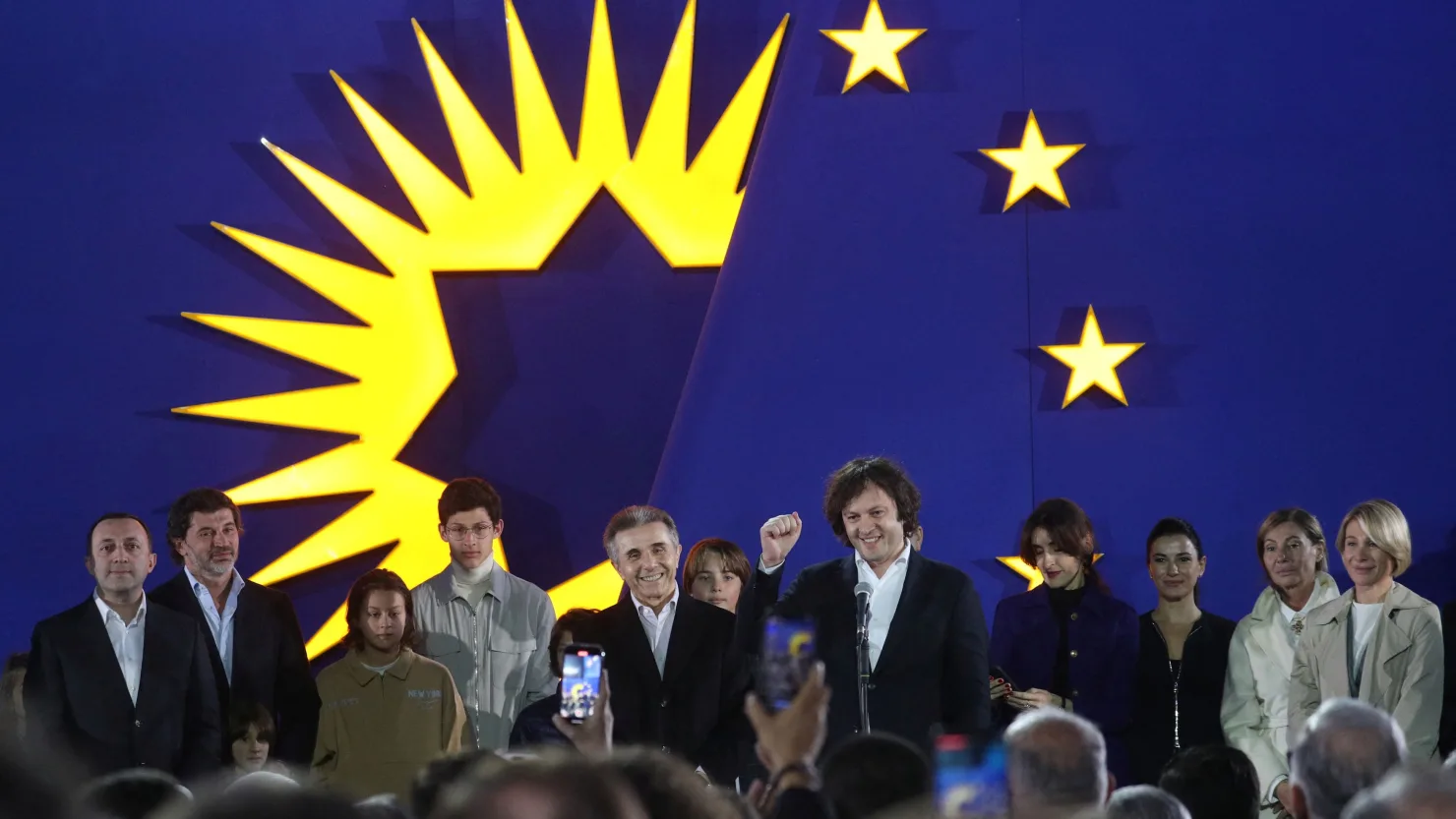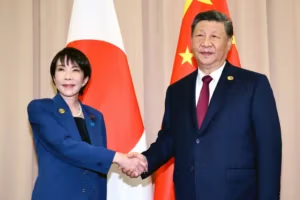Early results from Saturday’s parliamentary election in Georgia indicate a victory for the ruling Georgian Dream party, led by its billionaire founder Bidzina Ivanishvili. However, opposition leaders are refusing to recognize the outcome, citing “falsification” of the vote, marking a high-stakes moment in Georgia’s evolving political landscape.
With 70% of precincts counted, the electoral commission reported Georgian Dream had secured 53% of the vote. The election’s outcome, if confirmed, would signal a setback for those advocating closer European ties, as Georgian Dream has recently leaned towards pro-Russian policies amidst the ongoing war in Ukraine.
Opposition leaders, including Coalition for Change’s Nika Gvaramia, denounced the results as a “constitutional coup,” while Tina Bokuchava of the United National Movement claimed the Georgian people “voted for a European future.” Independent observers and the coalition “We Vote” reported alleged voter intimidation and vote-buying, raising questions about the election’s legitimacy.
Conflicting exit polls further fueled the divide: Georgian Dream-backed Imedi TV indicated a 56% win for the ruling party, while opposition-aligned channels projected strong gains for their side. In Tbilisi, the ruling party lost to the opposition in some areas, though Georgian Dream held commanding leads in rural regions.
Ivanishvili, who made his fortune in Russia and once supported pro-Western stances, has taken a more cautious tone towards the West, arguing against Georgia’s involvement in the Ukraine conflict. His rhetoric has recently echoed a more pro-Russian stance, causing concern among Western allies. During a victory speech, Ivanishvili lauded his party’s resilience, describing Georgian Dream’s success as a “testament to the Georgian people’s strength.”
The election drew criticism from Western observers, including Georgian President Salome Zourabichvili, a vocal opponent of Georgian Dream. Independent election monitors, like the International Society for Fair Elections and Democracy (ISFED), documented alleged irregularities, including an instance of ballot-stuffing captured on video, which the election commission later deemed invalid.
Georgia’s relations with the West have soured, particularly since Russia’s 2022 invasion of Ukraine. While other countries imposed sanctions, Georgia opted not to, and Georgian Dream’s rhetoric has continued to shift towards Moscow’s stance. This change is stark in a nation once known for its pro-Western orientation; Tbilisi’s main airport road is named after former U.S. President George W. Bush.
Amid increasing pro-Russian sentiment within Georgian Dream, Hungarian Prime Minister Viktor Orban, known for his own contentious stance toward the EU, congratulated the ruling party on its “overwhelming victory.” Meanwhile, Georgian Dream’s campaign prominently focused on avoiding entanglement in the Ukraine conflict, positioning itself as the only party that could maintain Georgia’s peace and stability.
With final results pending, the opposition’s next moves remain uncertain, but ongoing protests and challenges to the results underscore a significant division in Georgia’s path forward, one that may impact the country’s long-standing but now fragile relationship with the West.





